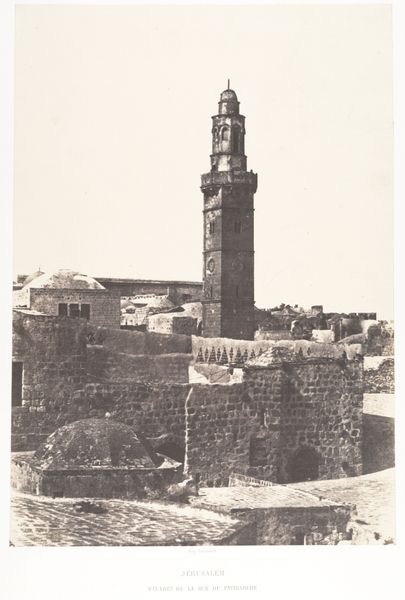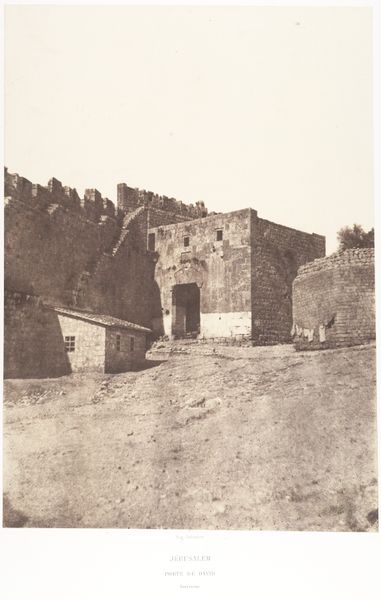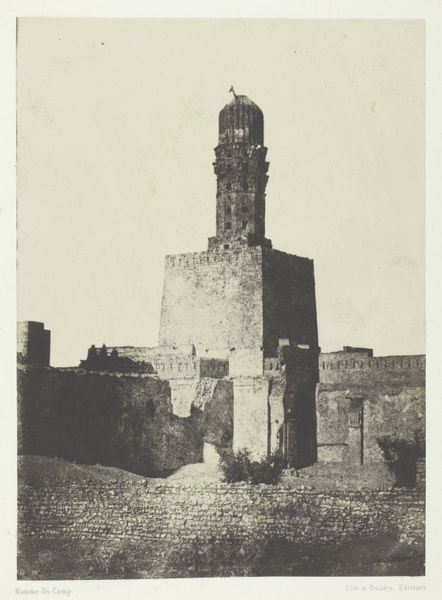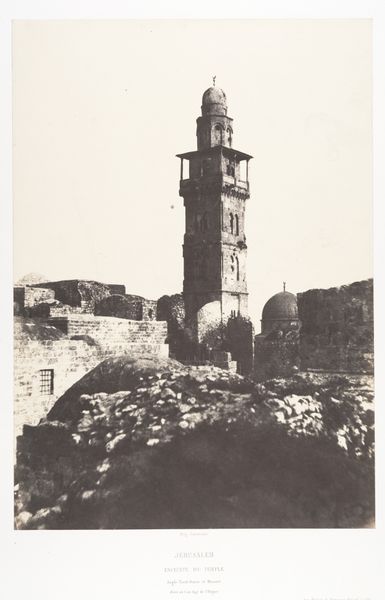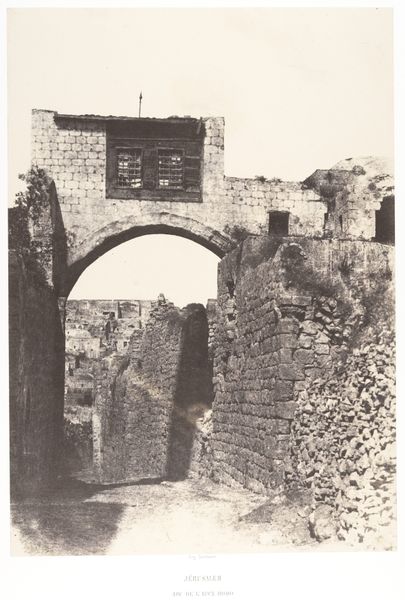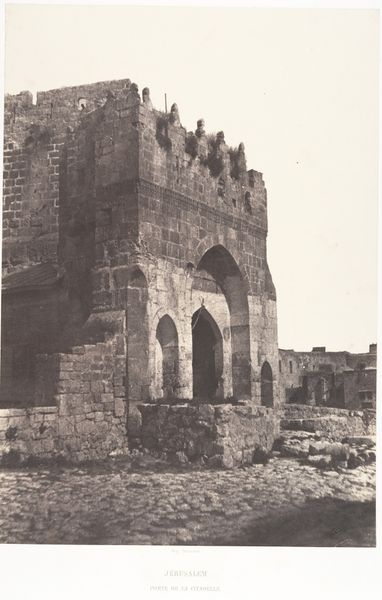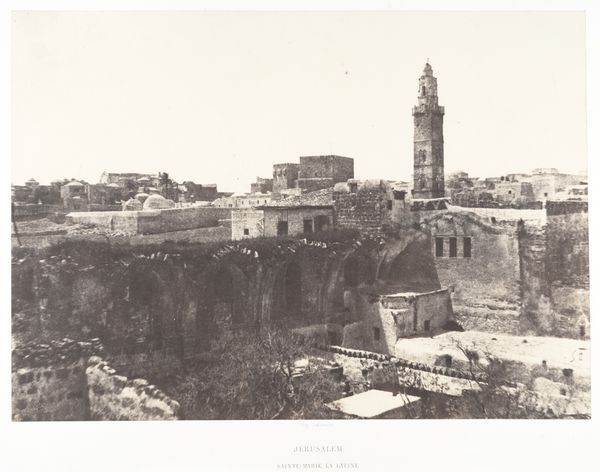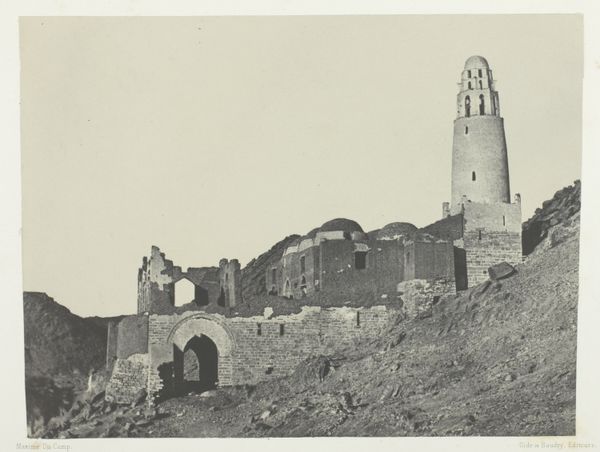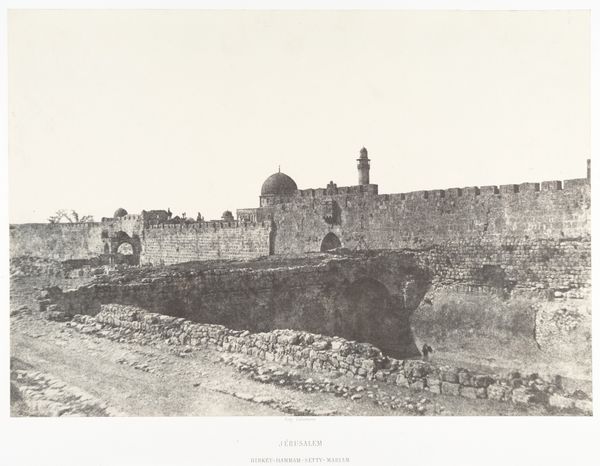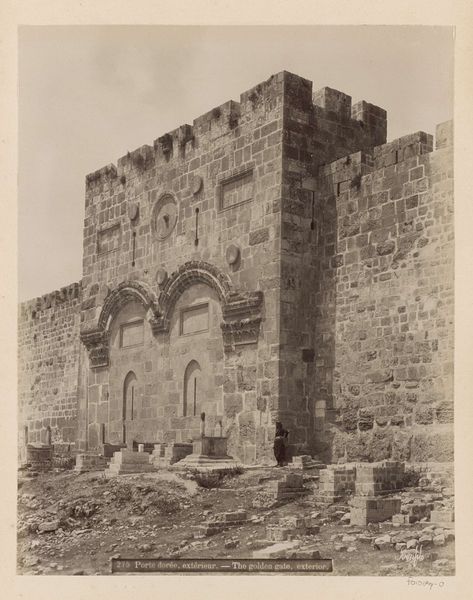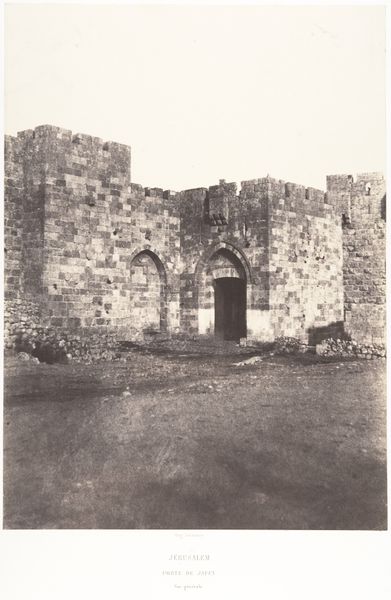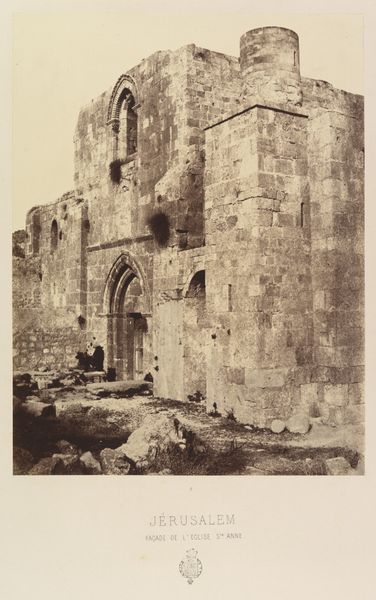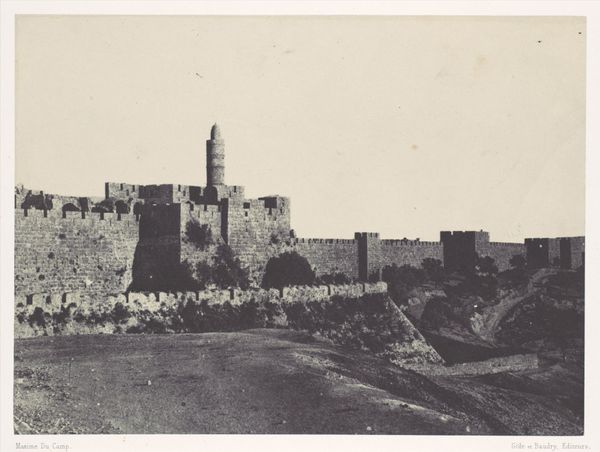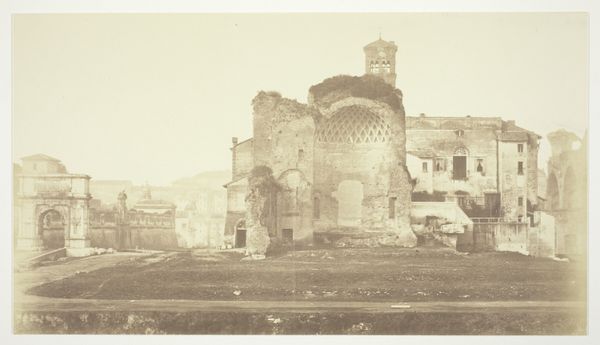
Jérusalem, Minaret de l'ancienne mosquée d'Abd-es-Samed 1854 - 1859
0:00
0:00
print, etching, photography, architecture
#
excavation photography
# print
#
etching
#
landscape
#
outdoor photography
#
photography
#
ancient-mediterranean
#
arch
#
islamic-art
#
history-painting
#
architecture
Dimensions: Image: 32.8 x 23.3 cm (12 15/16 x 9 3/16 in.) Mount: 59.4 x 45.1 cm (23 3/8 x 17 3/4 in.)
Copyright: Public Domain
Auguste Salzmann created this salt print of the Minaret of the former Mosque of Abd-es-Samed in Jerusalem. Taken in the mid-19th century, the photograph exists within the context of burgeoning European and American interest in the Middle East. Salzmann's work exists as an ethnographic study, a visual record intended to document and classify the architecture of Jerusalem. Yet, the image also reflects the power dynamics inherent in the act of representation. European photographers, often backed by colonial interests, captured images of the Middle East. Their work circulated widely, shaping Western perceptions of the region and its people. The minaret itself is presented as an isolated object, devoid of human presence or activity. Its aesthetic qualities are emphasized, transforming a religious and cultural site into a visual spectacle for the Western gaze. Consider how this representation impacts our understanding of Jerusalem and its complex history. What stories remain untold in this seemingly objective depiction?
Comments
No comments
Be the first to comment and join the conversation on the ultimate creative platform.
